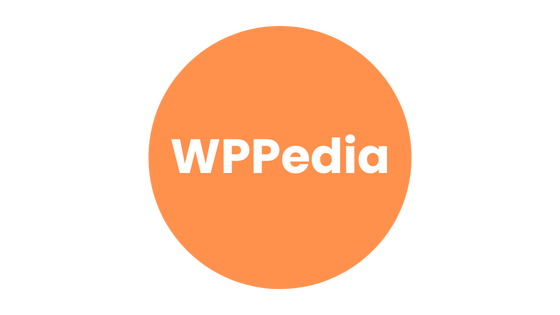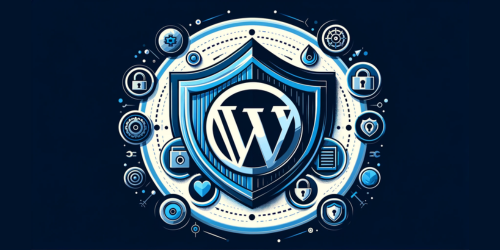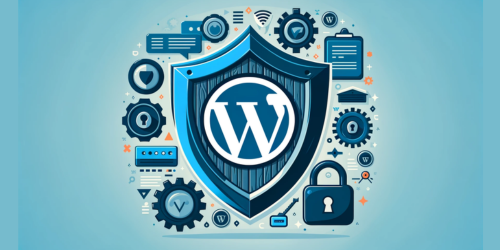Have you ever wondered how the digital world’s juggernauts create their online presence? At the heart of many lies WordPress, a platform not just surviving but thriving in the ever-evolving internet landscape. Here, we unravel the essence of WordPress, a tool that powers a staggering portion of the web for beginners.
Importance and Popularity of WordPress
WordPress, known for its open-source brilliance, is more than just a tool; it’s the architect of digital dreams for many. Embracing over 43% of the internet, it’s not just a platform but a phenomenon【11†source】. Its popularity stems from its versatility, powering everything from bustling e-commerce sites to personal blogs with equal finesse.
Its allure lies in its accessibility; WordPress democratises web creation, turning novices into website wizards. Whether you’re a small business owner stepping into the digital arena or a blogger scripting your first post, WordPress stands as a reliable ally, balancing cost-efficiency with powerful features.
This introduction serves as your gateway into the world of WordPress. Prepare to discover how it’s become a cornerstone of the internet and why its significance continues to grow in an ever-connected world. Learn more about WordPress Popularity from here.
Key Takeaways:
- Emphasis on user-friendly, no-coding-required approach suitable for beginners.
- Coverage of key WordPress components: themes, plugins, dashboard, posts vs. pages, SEO basics.
- Focus on practical tutorials and step-by-step guides.
- Highlighting the potential of WordPress for various projects: blogs, eCommerce, business sites.
1. Why Learn WordPress?
In the digital realm, choosing the right platform can be a game-changer. WordPress emerges as a top contender, but why opt for it over others like Wix or Shopify?
Free and Open Source Nature
The primary charm of WordPress lies in its open-source nature. Unlike many of its competitors, WordPress is absolutely free to use. You’re just a domain name and web hosting away from launching your digital presence. This aspect not only makes it economically viable but also fosters a sense of community and collaboration, further enriching the platform with a diverse range of themes and plugins. Learn more about WordPress’s open-source nature here.
Flexibility and Customization Options
With WordPress, the sky’s the limit. It’s a canvas for creativity, boasting over 50,000 themes and 10,000 plugins. This vast repository ensures that whether you’re setting up a blog, an eCommerce store, or a portfolio, WordPress can mold to your vision. The flexibility to tailor your website with such ease, without being bound by the limitations of other platforms, is what sets WordPress apart. Explore WordPress themes and plugins.
2. Time Required to Learn WordPress
Embarking on the WordPress journey might seem daunting at first. How much time does it take to go from a beginner to a proficient user?
Basic Understanding Timeframe
The beauty of WordPress lies in its user-friendly design. You can grasp the basics of WordPress in a week or less, provided you have basic computer skills. This makes it an ideal platform for those eager to quickly start their digital venture.
Journey to Becoming a Power User
For those aspiring to dig deeper, becoming a WordPress power user – someone familiar with all the nooks and crannies of the platform – might take a month or two. This includes mastering various plugins, themes, and customizations. If you’re aiming to develop your own plugins or themes, expect to spend a few more months, especially if you’re new to programming. Dive into advanced WordPress learning.
3. Is Learning WordPress Free?
In the world of WordPress, your investment is more about time than money. But what about resources for learning? Are they accessible without a hefty price tag? Dive into WordPress Free vs Paid Cost Analysis for more insights.
Free Resources and Tutorials
The internet is brimming with free resources to help you master WordPress. From comprehensive tutorials to detailed videos, there’s an abundance of quality content available at no cost. This makes WordPress not just a platform for creating websites but also for learning and growth. Access free WordPress tutorials.
Paid Resources for Advanced Learning
For those who wish to delve deeper, there are paid resources offering a more structured and detailed exploration of WordPress. These typically come with a small subscription fee and can provide a more focused learning experience. However, they are by no means a necessity for mastering WordPress. Explore paid learning resources like Lynda/LinkedIn Learning.
4. Technical Skills Needed for WordPress
One of the most enticing aspects of WordPress is its accessibility to individuals of all technical skill levels. But what does this mean for beginners and those not versed in coding?
Non-Programmer Friendliness
You don’t need to be a programmer to use WordPress effectively. The platform is designed for users of all skill levels, including those with no prior coding experience. This inclusivity has made WordPress a popular choice among a diverse range of professionals. Discover how WordPress caters to non-programmers.
Minor Coding Skills for Additional Customization
While not required, having a basic understanding of HTML and CSS can enhance your WordPress experience. This knowledge allows for minor tweaks and personalizations beyond what is available through themes and plugins. However, it’s crucial to note that such skills are only beneficial for additional customization and not a prerequisite for using WordPress.
5. Choosing the Right Learning Resources
Navigating the ocean of WordPress resources can be overwhelming. How do you pick the ones that will truly enhance your learning journey?
Ensuring Resource Currency and Relevance
First, prioritize the freshness of content. The digital landscape, especially WordPress, evolves rapidly. Opt for resources updated within the last 6-12 months to ensure you’re learning the latest features and best practices. Stay updated with recent WordPress challanges.
Cost-effectiveness of Learning Materials
While free resources abound, some premium materials offer deeper insights. Balance your budget with the depth of knowledge required. Remember, expensive doesn’t always mean better. Assess the value each resource brings against its cost.
Aligning Resources with Personal Goals
Align your learning materials with your end goals. If you’re aiming to start a blog, focus on resources specific to blogging on WordPress. Similarly, for eCommerce ambitions, seek out WooCommerce-centric tutorials. This targeted approach ensures your learning is efficient and relevant.
6. Learning Resources for Beginners
Starting your WordPress journey? Here’s how to find beginner-friendly resources.
Beginner-Friendly Resources
Look for resources labeled as ‘for beginners’ or ‘starter guides’. These are designed to build your foundation without overwhelming you with technical jargon.
Accessibility to Help and Support
Choose resources that offer support. This could be through forums, comment sections, or direct access to the tutor. It’s reassuring to know you can get help when you hit a roadblock.
7. Types of Learning Formats Available
The mode of learning is as crucial as the content itself.
Video vs. Written Tutorials
Some prefer the visual and auditory engagement of video tutorials, while others favor the flexibility and pace control of written guides. Reflect on which format aligns best with your learning style.
8. Learning Path According to Website Type
Tailor your learning to the type of website you aspire to create.
Focusing on Specific Website Types (eCommerce, Blogs, etc.)
If you’re eyeing an eCommerce site, dive into WooCommerce guides. For bloggers, resources focused on content management and optimization are key. This specificity in learning paths ensures more relevant and actionable knowledge. Explore WordPress plugins for different social media platforms.
9. Utilizing Online Search for Learning WordPress
Google is a powerful tool in your WordPress learning arsenal.
Effective Googling Techniques
Master the art of search queries. Use specific terms related to your WordPress queries for more targeted results. Remember, the right keywords can lead you to a treasure trove of information.
10. Diverse Online Learning Platforms
The web is filled with platforms offering WordPress learning resources. But which ones to choose?
Overview of Various Online Platforms (WordPress Codex, SkillJet Academy, etc.)
Begin with the WordPress Codex for foundational knowledge. For more structured learning, platforms like SkillJet Academy offer courses on varied aspects of WordPress.
Free and Paid Courses on Platforms like LinkedIn Learning, SiteGround, etc.
LinkedIn Learning provides a range of courses with a focus on business applications of WordPress. SiteGround, on the other hand, offers practical guides, especially useful for hosting-related queries. Both free and paid courses can provide immense value depending on your specific needs.
11. Frequently Asked Questions
Q: How to Learn WordPress as a Beginner?
Start with a basic understanding of what WordPress is. Use beginner-friendly resources such as WordPress Codex or WPBeginner. Engage in hands-on practice by setting up a simple website and gradually explore themes and plugins.
Q: Can I Learn WordPress in 3 Days?
While mastering WordPress in three days is ambitious, you can grasp the basics. Focus on core functionalities like setting up a site, choosing themes, and using basic plugins. Continued learning and practice are key for more in-depth knowledge.
Q: Can I Learn WordPress in 2 Weeks?
Two weeks is a realistic timeframe to get comfortable with WordPress basics. Dedicate time to exploring different features, experimenting with themes, and understanding plugins. Utilize online tutorials and practical application for effective learning.
Q: Is WordPress Still Relevant in 2023?
Absolutely. WordPress continues to be highly relevant in 2023. It powers a significant portion of the web and remains popular due to its flexibility, extensive community support, and continuous updates that keep it in line with modern web standards.



